
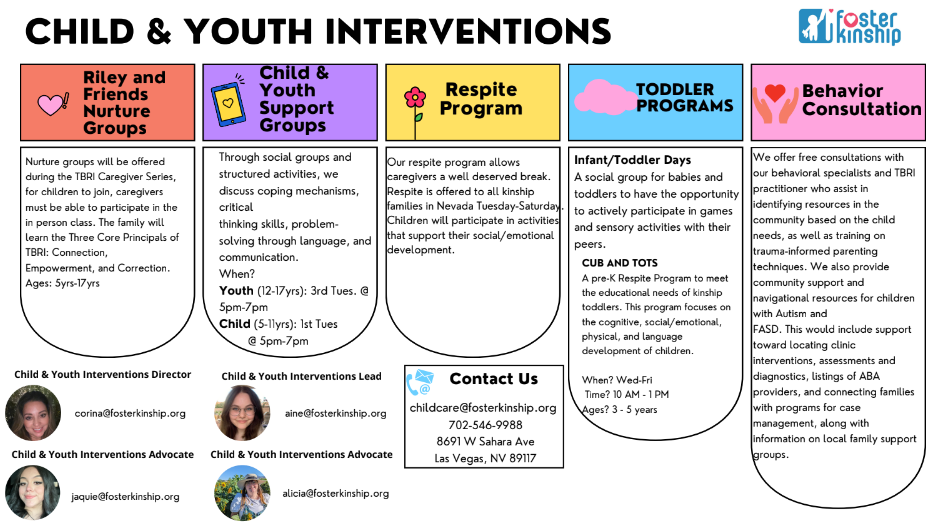
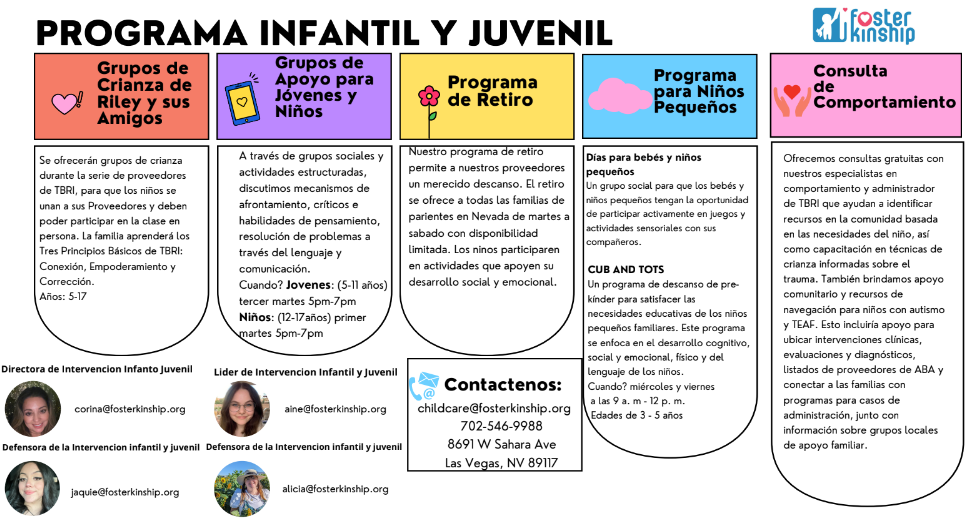
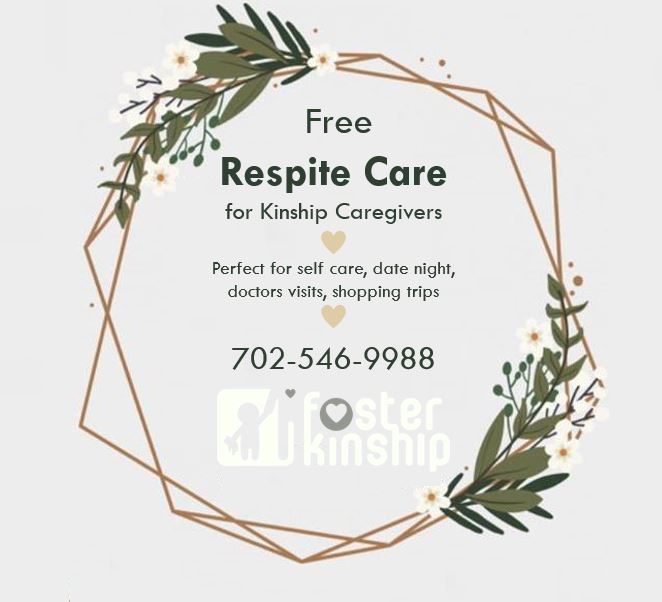
Kinship caregivers frequently abandon their physical and mental health needs when they become primary caregivers for abused and neglected children. Without access to proper services and caring for themselves, the needs of the children can overwhelm a kinship caregiver, causing further disruption to the child's stability and degradation in the quality of life for caregivers. That is why Foster Kinship began offering respite care for kinship families using Foster Kinship's evidence-based model for family stability in 2020.
Kinship families in Clark County, NV, are eligible for free respite care each month with our trained childcare team. Scheduling in advance is required. These respite hours are in addition to any other childcare programming utilized by the family. If you have any questions, please email childcare@fosterkinship.org or call our office 702-546-9988.
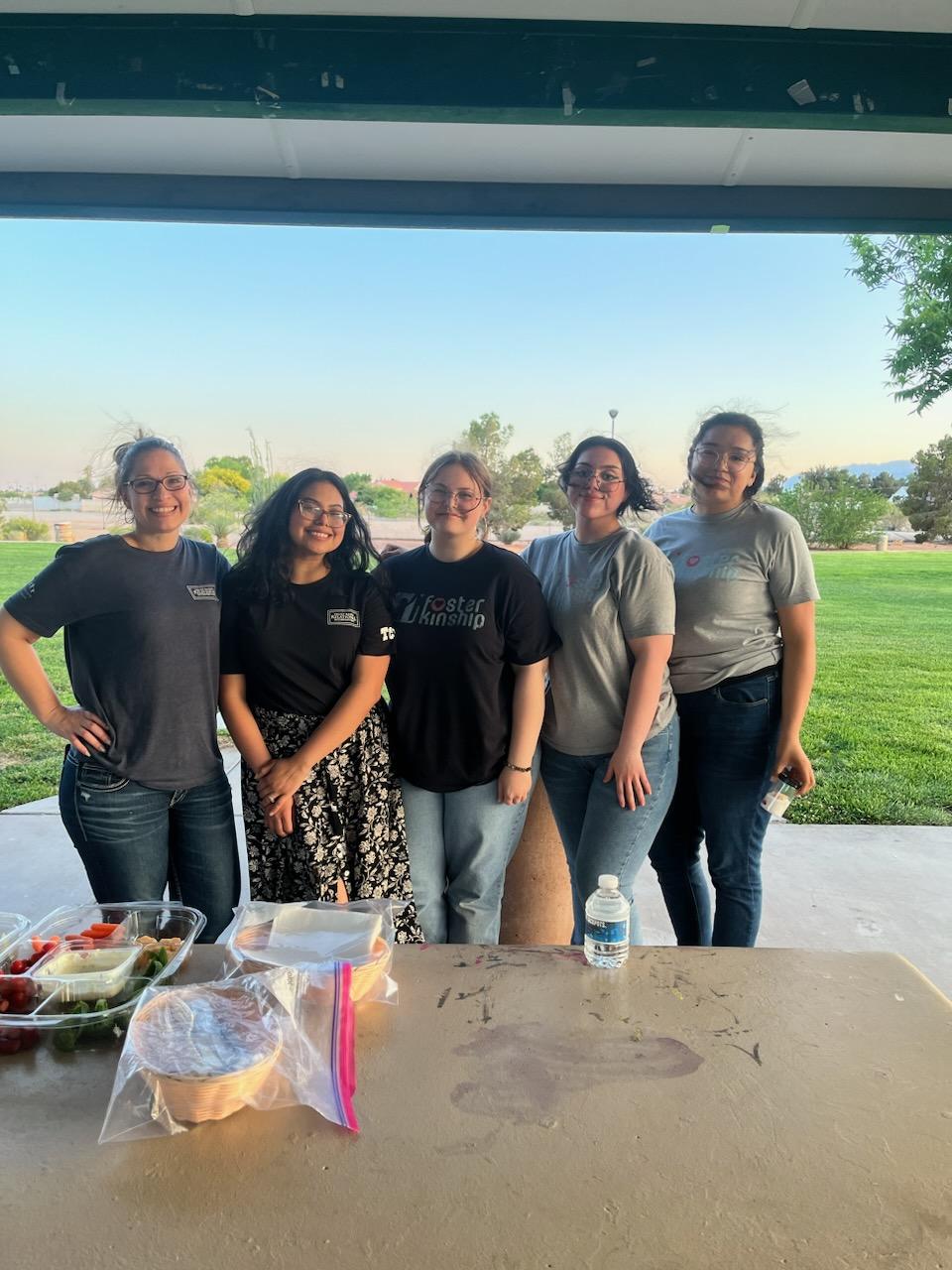
We offer free consultations with our TBRI® practitioners who assist in identifying resources in the community based on the child needs, as well as training on trauma-informed parenting techniques. We also provide community support and navigational resources for children with Autism and FASD. This would include support toward locating clinic interventions, assessments and diagnostics, listings of ABA providers, and connecting families with programs for case management, along with information on local family support groups.
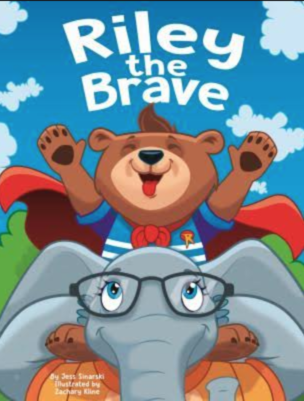
Our Nurture Group focuses on the resiliencies of kinship children by teaching them how to regulate their emotions, process the impacts of trauma, and learn how to form thriving relationships.
Foster Kinship’s Nurture Groups are offered for up to 6 children between the ages of 5 to 10 years old. The curriculum is grounded in Trust-Based Relational Intervention (TBRI®)–an evidence-based practice specifically focused on empowering and connecting children who have experienced trauma. The curriculum also incorporates Jude Cassidy’s (2001) Four Necessary Skills for Healthy Relationships. Our trauma-informed childcare specialists teach these skills in a fun and safe environment by using the book, "Riley the Brave," which explains how trauma impacts the brain and how to create relationships with safe adults. Notably, this book teaches neuroscience in an accessible manner and provides concrete skills for caregivers to implement.

We also offer respite opportunities for caregivers with older youth through our Youth Support Groups. We discuss coping mechanisms, critical thinking skills, problem-solving through language, and communication through youth social groups and structured activities.
Young adult professionals who have spent time in kinship and foster care as children facilitate the groups for youth. This peer mentorship enables trust between the group and inspires youth in difficult places to see what is possible for their lives.
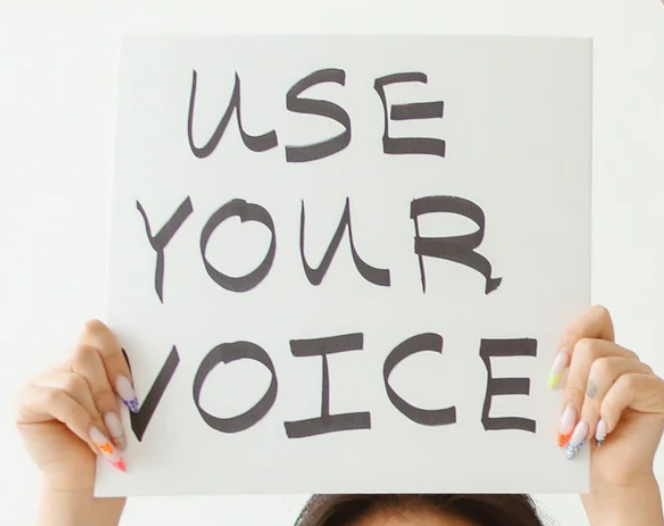
Our Youth Advocacy Board is an opportunity for youth and young adults who have experienced foster care to use their voice to make positive change! If exists to give youth a chance to bring their concerns to a table of their peers, and working together with professionals to advocate for change, and improve systems and policies that could serve children and youth better.
It is also an educational opportunity, where youth can learn about their rights and the resources available to them.


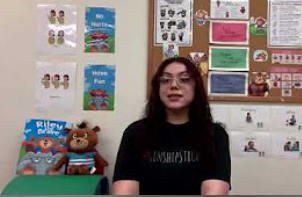
Sticking Together is a Foster Kinship youtube series hosted by our very special and brave child & youth specialist, Jaquie Challoga. Sticking Together is designed to meet the needs of the entire family by having story times, managing BIG behaviors, crafts and more! We hope to post two videos a month, so STICK TOGETHER with us virtually or in person using our Child & Youth Intervention services!
Find our playlist here: https://youtube.com/playlist